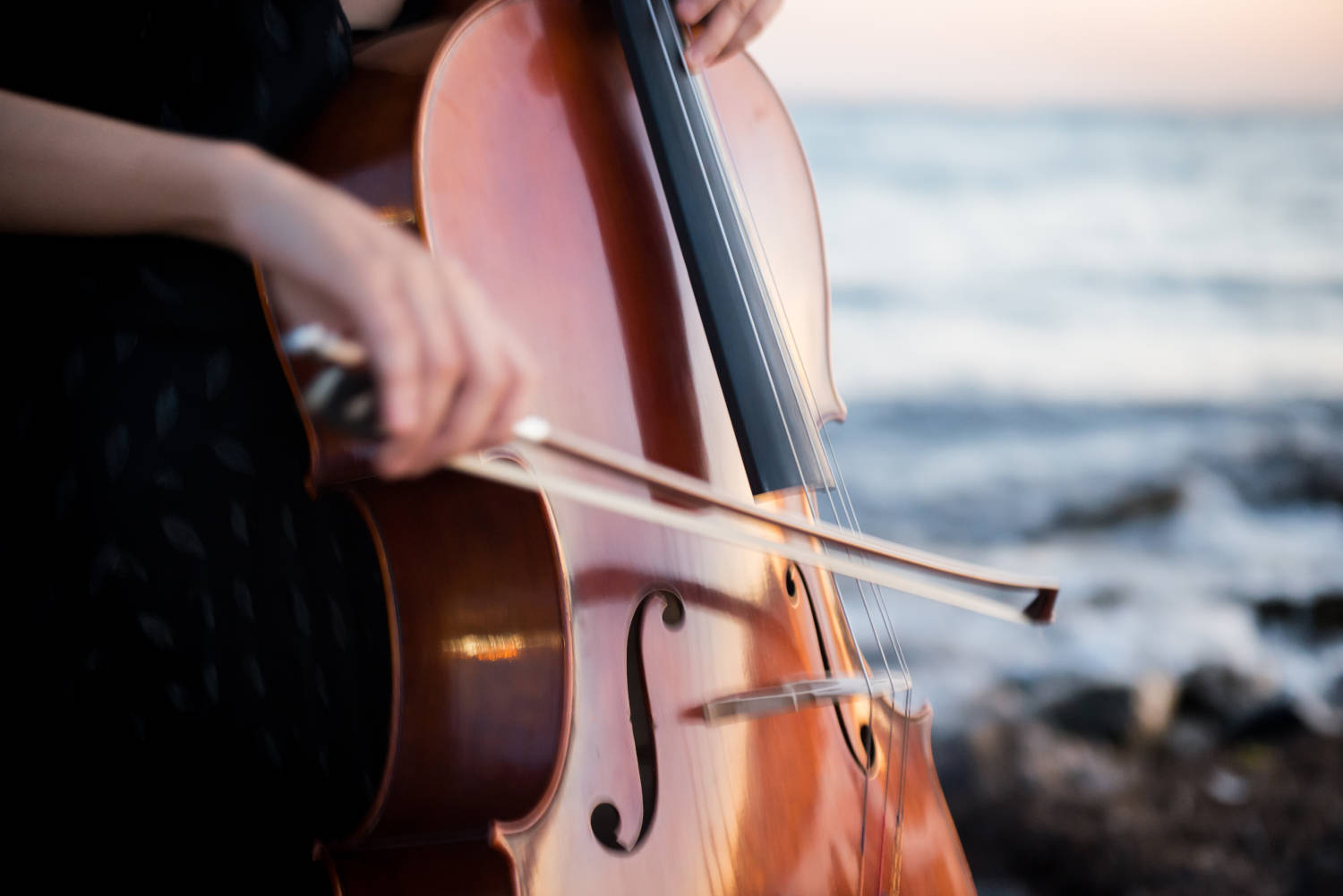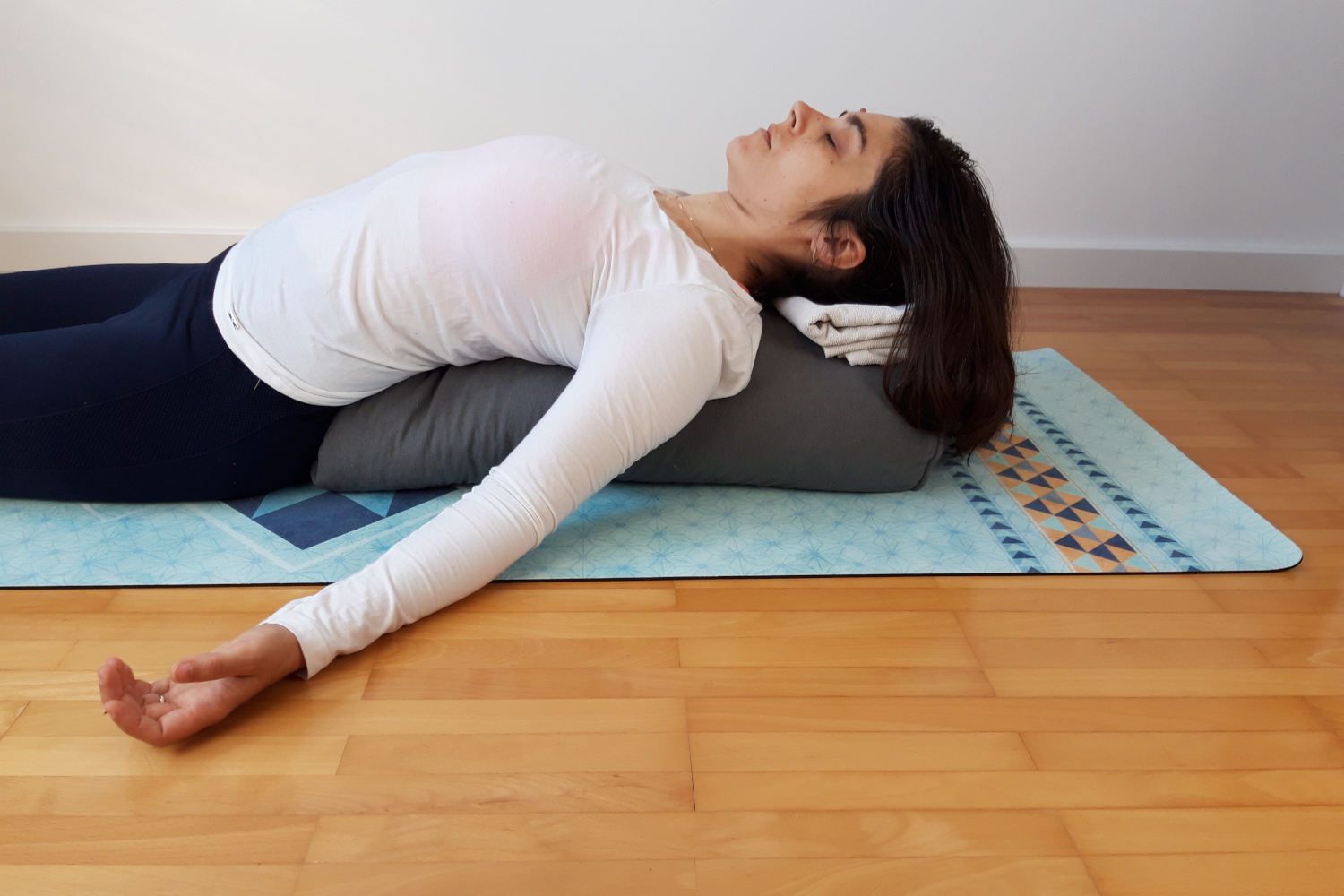by Fanny Mas (22.07.2022)
Summer is here, and it brings some changes to daily life that affect your music practice. Do you play much more than usual during this season? Do you take a break? Or do you bring your instrument on vacation? In this article, you will find tips on how to be mindful of your body in any situation.

Festivals, open-air concerts, masterclasses – for many musicians, summer is the second ‘high season’ after Christmas. There is little time for regenerative breaks, as the calendar sets the pace and the body must follow. Despite the stress, such a season can bring joy and self-confidence through wonderful experiences, positively impacting your body.
However, there is a risk that the body does not receive enough attention amidst all the excitement. Firstly, because you have little time for it, and secondly, because your focus is elsewhere. The fact is, your body has to work quite hard during intense periods: no matter what instrument you play or if you sing, the repetitive strain on your muscles increases, as does the risk of injury.
But the good news is: injuries can be prevented with proactive measures. Three aspects are particularly important in prevention…
Make it a habit to listen to your body: ask yourself at the same time every day about your physical condition, if you feel any tension or pain, or if you feel particularly good.
You can best establish this habit by linking it with another, already existing habit. Here are a few examples:
This way, you stay connected to your body despite summer distractions.
Schedule moments where your body can consciously recover from the one-sided strain of playing music.
Ideally, you can do gentle exercises that promote your body’s regeneration and provide a healthy balance (yoga, Alexander Technique, Qi Gong, etc.).
The simplest way: lie down on a yoga mat, close your eyes, and consciously relax your body, starting from your feet and slowly moving your awareness up to your scalp. Take more time for the body parts strained by playing music (often the neck, arms, etc.).
With a yoga bolster (a kind of larger neck roll) or a rolled-up towel, you can go a bit further and try the yoga pose “Savasana”. This exercise promotes diaphragmatic breathing and relaxation of the arms and shoulders:

It is recommended to do endurance training two to three times a week, meaning a workout where your heart beats faster than while sitting quietly for at least 30 minutes. The important thing is to know your current base fitness level and train accordingly. The performance is irrelevant – the main thing is to exercise and have fun! You can go for a run, swim, or bike ride; anything that gently activates and delights your heart is good.
Are you on the road with your band, on tour with the orchestra, or at a masterclass with like-minded people? Use the group dynamics and exercise together!
Many musicians are reluctant to take such breaks because resuming can be very difficult afterward. However, a break is a gift for the body and mind!
Your body is freed from the playing posture for a few days or weeks, and the tense muscles can recover.
Your mind is nourished by the many new experiences and impressions of free time: the beautiful nature you are in, the museums, conferences, and concerts you visit, the books you read, or simply catching up on sleep.
From all of this, you draw new strength and ideas for making music after the break.

Fanny Mas is an accordionist, flutist, and yoga teacher. She teaches both instruments at the Bregenz Music School (AT).
In November 2020, she founded IPAIA to support the well-being of musicians...
The best way to resume playing is to plan it before the break begins. Most importantly, bring along patience and joy. Even though it can be frustrating, the resumption must proceed in small steps. For example, if you previously practiced for two hours a day, you should not immediately play that long after a weeks-long break. Your muscles need to be gradually retrained. This is the best way to protect yourself from pain and injury.
The 'mindset'—specifically, the joy of 'getting fit again'—plays a significant role. Playing after the break will likely feel less controlled, and you might also notice your body readjusting. Instead of thinking, “I used to be much better at this”, appreciate how quickly your body learns and becomes fit again.
The resumption works best if, before the long break (e.g., 15 minutes at the end of your last practice session), you create a resumption practice plan considering the following points:
When resuming, consider the following:
This is the perfect opportunity to experiment with your practice. A fresh daily routine and new surroundings can encourage you to give up old habits and establish new ones.
For example, it's a good chance to permanently integrate more bodywork into your practice: take the time to do a short warm-up before practicing and to consciously relax your muscles afterward. Perhaps in your vacation accommodation, you finally have space to leave your yoga mat rolled out next to the music stand?
You can also experiment with your practice rhythm while being gentle on your body. While in everyday life you might have to complete your practice all at once, on vacation it might be possible to spread it out over the entire day. Instead of practicing for an hour in the evening, you could, for instance, practice for 20 minutes after breakfast, 20 minutes before lunch, and 20 minutes after an evening walk. Meanwhile, your body and mind regenerate – and you always practice relaxed and focused.
Of course, you can apply all the tips from the above section You Play Much More Than Usual in Summer even if you play as much as usual. During your vacation, notice any positive impacts on your concentration, playing, and physical condition.
Ask yourself what caused these changes and try to incorporate these insights into your everyday life.
Have fun experimenting and enjoy your summer!
Fanny Mas is an accordionist, flutist, and yoga teacher. She teaches both instruments at the Bregenz Music School (AT).
In November 2020, she founded IPAIA to support the well-being of musicians. In this framework, she regularly offers yoga for musicians and workshops for instrumental teachers who want to integrate more bodywork into their pedagogy.
On IPAIA, you can find instrument-specific e-books that promote better body awareness and free playing through yoga. Exercises, tips, and interviews on the topic of musician health are available for free on the IPAIA blog!